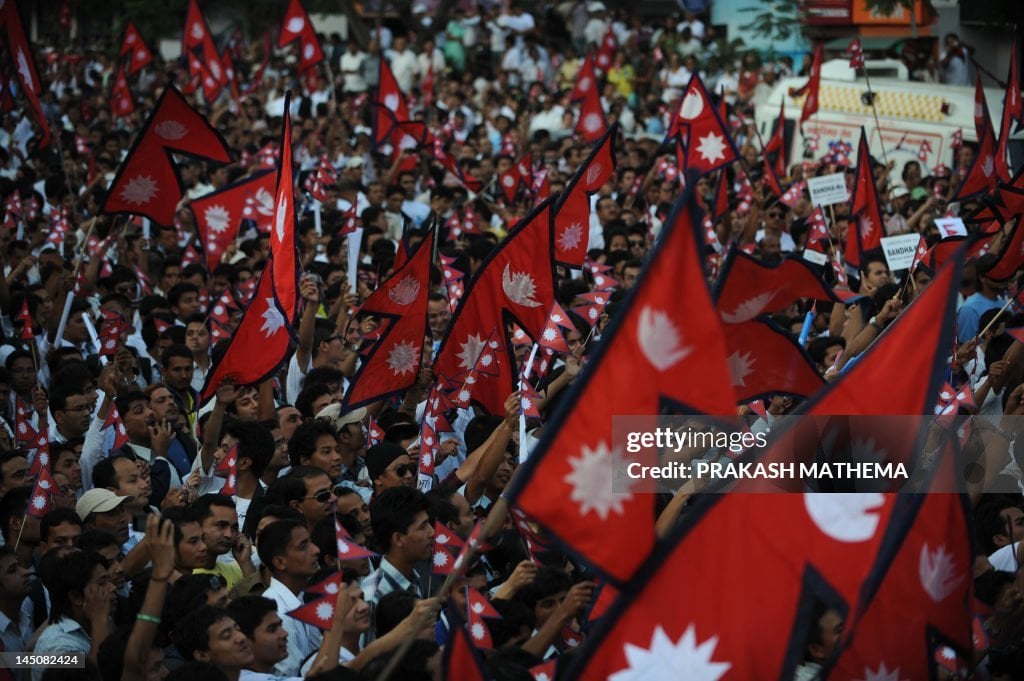A reflection on Nepal's Constitution: Achievements, issues, and future perspectives

As Nepal observes Constitution Day, it offers a moment for reflection on the achievements of the 2015 Constitution, the obstacles that remain, and the paths forward.
This critical examination is essential not only for understanding the Constitution’s impact but also for addressing the contemporary issues that challenge its efficacy and relevance.
The Legacy of the 2015 Constitution
The 2015 Constitution of Nepal was a milestone in the country's transition from a monarchy to a federal democratic republic. It embodied the hopes of a diverse nation striving for justice, inclusivity, and modern governance. The Constitution enshrined several fundamental principles: republicanism, secularism, proportional representation, and inclusion of marginalized groups. These were designed to create a more equitable society, rectifying historical injustices and ensuring that all segments of Nepali society had a voice in the governance process.
By formally dismantling the monarchy, Nepal sought to build a system of government that was not only democratic but also reflective of its complex social fabric. The Constitution aimed to promote secularism, guaranteeing freedom of religion and protecting the rights of various religious communities. Furthermore, it introduced a system of proportional representation intended to ensure that political power was more fairly distributed among Nepal's diverse ethnic, cultural, and social groups.
Achievements and Implementation Gaps
While the 2015 Constitution laid a strong foundation for democratic governance, its implementation has revealed significant gaps. The Constitution’s promises, though ambitious, have faced hurdles in their practical realization.
Strengthening Provincial Structures: Sher Bahadur Deuba, President of the Nepali Congress (NC), recently underscored the need to gradually enhance provincial structures. Although the Constitution provides a framework for federal governance, the practical aspects of devolving power and resources to provincial governments have often fallen short. Strengthening provincial administrations involves not only improving their administrative capacities but also ensuring they have the necessary resources and autonomy to function effectively. Deuba’s remarks highlight the importance of addressing these structural issues to make federalism work as intended.
Proportional Representation and Inclusivity: The principle of proportional representation was meant to ensure that all communities had a fair share in political power. However, practical challenges remain in translating this principle into effective governance. Marginalized communities, including Dalits, Janajatis, and women, still face barriers to full participation in political and social spheres. While the Constitution aimed to address these issues, the persistence of systemic inequalities and discriminatory practices undermines its effectiveness.
Implementation of Legal Provisions: Despite the Constitution’s comprehensive legal framework, several provisions, particularly those aimed at eliminating caste-based discrimination, have not been effectively implemented. This gap between legal provisions and their practical enforcement continues to impede progress towards a truly inclusive society.
A Madheshi leader has pointed out that the gap between the Constitution’s promises and actual implementation remains significant. She emphasizes that a stable government is crucial for addressing the aspirations of the younger generation and realizing the Constitution’s goals. Similarly, another UML leader, stresses the need to convert public expectations into tangible outcomes. These observations underscore the necessity of both political stability and effective governance to bridge the implementation gaps.
Growing Dissent and Opposition
The 2015 Constitution has faced increasing criticism and opposition, especially as Constitution Day approaches. Protests and dissent are expected from groups that are dissatisfied with the current framework. These groups include Madheshi activists, who feel marginalized, monarchists who yearn for a return to the old regime, and anti-corruption campaigners disillusioned by persistent governance issues.
Some factions advocate for the restoration of the monarchy, despite its implausibility in today’s political landscape. This sentiment reflects a broader frustration with the current system and the belief that the monarchy might have offered more effective governance. However, this viewpoint overlooks the historical failures of the monarchy and the need for a modern, democratic framework that addresses contemporary challenges.
This opposition highlights a deeper discontent with governance and implementation rather than a straightforward rejection of republicanism. Critics argue that while the principles of the 2015 Constitution are sound, the execution has been flawed. Issues such as corruption, inefficiency, and the failure to fully implement constitutional provisions related to marginalized communities contribute to this dissatisfaction.
Reevaluating the Reservation System
One of the most contentious issues is the reservation system, introduced to address historical injustices and promote inclusivity. Dr. Ram Krishna Timilsina, former Chairman of the National Inclusion Commission, has called for a thorough review of this system. He argues that while the reservation system was intended to benefit marginalized groups, it has often failed to reach those most in need. Instead, benefits have disproportionately favored certain segments within reserved categories.
Recent studies, including those conducted by the National Inclusion Commission, reveal that the reservation system’s benefits have not been equitably distributed. In some cases, more privileged individuals within reserved categories have received greater benefits, leaving the most disadvantaged without adequate support. This issue reflects similar challenges faced in other South Asian countries, where reservation systems have been scrutinized for their effectiveness and fairness.
Recommendations for Reform
To address these challenges and enhance the effectiveness of the 2015 Constitution, several reforms are necessary:
1. Strengthening Federal and Provincial Structures: As highlighted by Sher Bahadur Deuba, there is a need to reinforce the capacities and autonomy of provincial governments. This includes improving administrative functions, ensuring adequate resources, and providing clear mandates for provincial governance. Strengthening these structures is essential for the effective implementation of federalism and for addressing regional disparities.
2. Reinforcing Proportional Representation and Inclusivity: The principles of proportional representation and inclusivity must be bolstered to ensure that marginalized communities are adequately represented. This involves implementing measures to prevent discrimination and ensuring that legal provisions designed to protect these communities are effectively enforced.
3. Reforming the Reservation System: A comprehensive review and reform of the reservation system are crucial. This review should focus on setting benchmarks to ensure that benefits are fairly distributed and that the system effectively reaches those who need it most. Adjustments should be made to prevent exploitation and ensure that the reservation system fulfills its intended purpose.
4. Enhancing Governance and Reducing Corruption: Addressing issues of governance and corruption is vital for maintaining public trust and ensuring effective implementation of constitutional provisions. This includes promoting transparency and accountability within political parties and government institutions. Measures should be implemented to reduce financial and other forms of corruption, which undermine the integrity of governance.
5. Promoting Dialogue and Stability: Engaging in dialogue with dissenting groups and addressing their concerns can help reduce tensions and foster stability. This involves listening to various stakeholders and finding common ground to ensure that the Constitution’s principles are upheld and effectively implemented. Promoting political stability and addressing grievances through constructive dialogue are key to maintaining social cohesion and advancing democratic governance.
Conclusion
The 2015 Constitution of Nepal represents a significant achievement in the country's democratic evolution. It has provided a framework for a more inclusive and equitable society, addressing historical injustices and promoting fundamental rights. However, realizing its full potential requires addressing ongoing challenges and implementing necessary reforms.
By focusing on strengthening governance structures, ensuring effective implementation of constitutional principles, and addressing the needs of marginalized communities, Nepal can work towards fulfilling the promises of its Constitution. This journey involves not only acknowledging the achievements but also confronting the shortcomings and striving for continuous improvement. Through a commitment to reform and inclusivity, Nepal can build a more just and equitable society for all its citizens.
(The author engages in scholarly research on political and international affairs).




Leave Comment